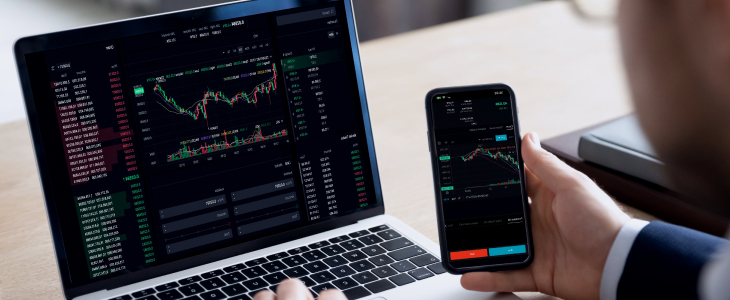Understanding Forex Trading Brokers A Comprehensive Guide 1970872141

Understanding Forex Trading Brokers: A Comprehensive Guide
In the world of Forex trading, brokers play a pivotal role in connecting traders to the market. These intermediaries facilitate transactions and provide access to various trading instruments and platforms. With the vast array of options available, it is crucial to understand the various types of brokers and how to select the right one for your trading needs. For a detailed evaluation of top Forex brokers, visit forex trading brokers Global Trading Brokers.
What is a Forex Trading Broker?
A Forex trading broker is a firm or individual that acts as an intermediary between traders and the currency market. Brokers allow traders to buy and sell currencies, providing access to trading platforms where these transactions can take place. They make money through spreads, commissions, or a combination of both, depending on their business model.
Types of Forex Brokers
Understanding the different types of Forex brokers is essential for any trader. Generally, there are three main types:
- Market Makers: These brokers set their own prices and create a market for traders. They profit from the spread between the buy and sell prices. Market makers often provide a stable trading environment but might have wider spreads.
- ECN Brokers (Electronic Communication Network): ECN brokers connect traders directly to the interbank system, allowing for tighter spreads and direct access to the market. They charge a commission on trades, making them ideal for high-volume traders.
- STP Brokers (Straight Through Processing): STP brokers automatically execute orders at the best available prices in the market. They usually have lower spreads than market makers and charge a commission, combining features of both ECN and market maker brokers.
How to Choose the Right Forex Broker
Choosing the right Forex broker is critical for trading success. Here are several factors to consider:
- Regulation: Ensure that the broker is regulated by a recognized authority, such as the FCA in the UK, ASIC in Australia, or the NFA in the U.S. Regulation helps protect your funds and ensures ethical trading practices.
- Trading Platform: The trading platform should be user-friendly, reliable, and equipped with the necessary tools for analysis and trading. Popular platforms include MetaTrader 4, MetaTrader 5, and proprietary platforms.
- Cost of Trading: Look at the broker’s spreads and commissions. Some brokers offer zero commission but wider spreads, while others have lower spreads with a set commission per trade.
- Customer Support: Good customer service is crucial, especially for beginners. Ensure the broker offers responsive customer support through multiple channels, including live chat, email, and phone.
- Account Types: Some brokers offer various account types to cater to different trading levels and strategies. Look for accounts that align with your trading goals and experience level.
Popular Forex Trading Brokers

There are numerous brokers available in the market, each with its distinct offerings. Here are a few popular Forex trading brokers you might consider:
- IG Group: A well-regulated broker with a wide range of trading instruments, IG Group is known for its flexible trading platform and excellent customer support.
- OANDA: OANDA offers competitive spreads, is regulated in several jurisdictions, and provides a robust trading platform suitable for both beginners and experienced traders.
- FXCM: FXCM is known for its favorable trading conditions and high-quality educational resources, making it an attractive choice for new traders.
- Interactive Brokers: This broker caters mainly to professional traders with its advanced trading tools and low-cost trading options.
The Importance of Leverage in Forex Trading
Leverage is one of the defining features of Forex trading. It allows traders to control larger positions with a smaller amount of capital. While leverage can amplify profits, it also increases the risk of significant losses. Different brokers offer varying levels of leverage, so it is vital to choose a broker that suits your risk tolerance and trading strategy.
Forex Trading Strategies
Having a trading strategy is essential for success in Forex trading. Here are a few popular strategies:
- Scalping: This strategy involves making numerous small trades to exploit minor price movements throughout the day.
- Day Trading: Day traders open and close positions within the same day, aiming to capitalize on short-term market fluctuations.
- Swing Trading: Swing traders hold positions for several days or weeks, taking advantage of larger price movements.
- Position Trading: This long-term strategy involves holding positions for months or even years, based on fundamental analysis.
Risk Management in Forex Trading
Effective risk management is crucial to protect your trading capital. Here are key practices to follow:
- Setting Stop-Loss Orders: A stop-loss order automatically closes a position at a predetermined price, limiting potential losses.
- Proper Position Sizing: Determine the right position size based on your account balance and risk appetite to avoid overexposure.
- Diversification: Spread your investments across different currency pairs and strategies to reduce risk.
Conclusion
Choosing the right Forex trading broker is crucial for success in the competitive world of currency trading. By understanding the different types of brokers, evaluating essential factors, and employing effective trading strategies and risk management practices, you can enhance your trading experience. Remember to continually educate yourself and stay informed about market trends. Happy trading!